Seducer and seducee are jumping onto any bedfellow with shocking alacrity. Anyone indulging in such outrageously immoral behaviour




Conventional media and social media have an uneasy relationship, each taking a “holier than thou” approach towards the other. But, the Niira Radia tapes controversy has, for the first time, brought the social media in direct confrontation with the conventional media in India.
This blog post is not about the media houses or journalists figuring the Radia tapes controversy, nor about their innocence or guilt. This post is about the larger picture of the conduct of social media, particularly in the context of the tape controversy.
Right from the moment the tape story broke, the social media has been on the rampage -- a deluge of tweets, retweets and comments. Nothing wrong with that, per se. But the sheer volume and the sweeping nature of the comments were astounding.
The tape story brought out an intrinsic character of a social network. It's a convenient platform for an individual to shout out almost anything to the world at large. There are no rules there; and postings are highly opinionated often without any explanatory, leave alone convincing, arguments.
I have seen some postings on Twitter and Facebook (I am not referring to the tape story) that are outright defamatory. There was one extremely damaging posting about a popular mobilephone service provider; and I wouldn’t be surprised if the blogger was tracked down and a legal notice slapped on him. Whether we like it or not, the recklessness of the social media is one of its defining characteristics. Of course, there are many responsible users of social media, but they are a minority.
The social media in India is largely reactive; and not, like in the US, proactive. Some of the big stories there have broken on blogs and were later picked up by the conventional media. The story of Michael Jackson’s death is just one example. Here on the contrary, when Jyoti Basu was critically ill, a rumour that he had died appeared on Twitter; and in no time it got retweeted multiple times. Many people, shocked at the way the story spread on Twitter, retweeted the feeds of conventional media to establish that Basu was indeed alive.
There’s no doubt that in India, the social media is vibrant. Look at the number of people on Facebook, Orkut and such networks, sharing information. But one surely gets the feeling the serious section in the social media landscape is a minority, almost invisible. Serious discussion on social media is drowned out by recklessly sweeping, intemperate opinions.
Social media in India is in its infancy and very much evolving; and I think there's a huge scope for growth, not in terms of numbers but in terms of perspective and depth bloggers or tweeple offer to the world at large. Remember, mass communication today is not just about a few newspapers or a few television channels. The canvas has enveloped a whole range of communication devices.
I wish we had more blogs that offered well-thought-out, well-reasoned-out, well-contextualised, in-depth reports and analyses on current social, political and economic issues. Probably, more serious people should take part in and enrich the social media. This is all the more because of the highly networked world we are living in.
THEY REINFORCE EACH OTHER, DON’T THEY?

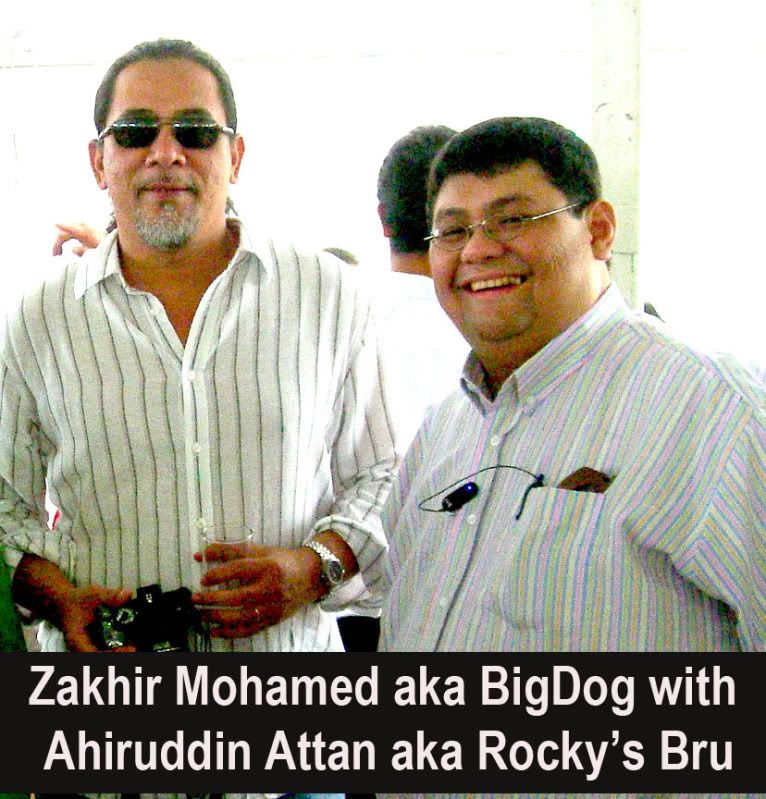
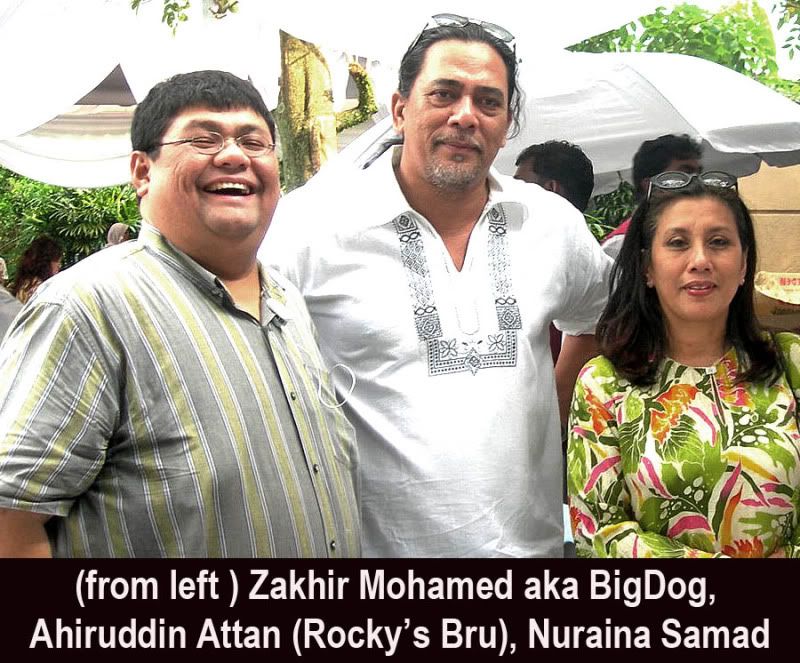
In the Mainstream Media (NST Group)
after the Forced Resignation of former Prime Minister Tun Abdullah Badawi
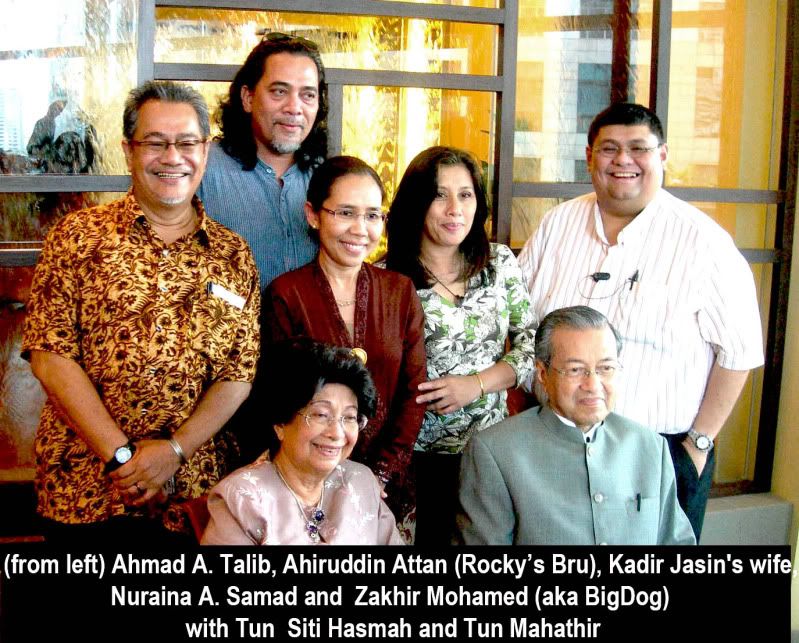
NOTE: Malaysian Insider reported (20 May 2009): “…Regime change in Malaysia often means regime change in Umno-owned media companies. Datuk Ahmad Talib, who was squeezed out of NSTP in 2005, returned to the group as Media Prima’s Executive Director. “
Ahiruddin Attan (Rocky’s Bru) after a brief spell as a blogger during Abdullah Badawi’s tenureship returned to NST group as Editor-in-Chief of Malay Mail in June 2009.
Nuraina Samad rejoined NST in July 2009 after leaving NST in 2006.
 (Not in the group picture above with Dr Mahathir,) is Zainul Ariffin Isa, who returned to head the three newspapers under the NSTP, namely New Straits Times/Business Times, Berita Harian and Harian Metro.
(Not in the group picture above with Dr Mahathir,) is Zainul Ariffin Isa, who returned to head the three newspapers under the NSTP, namely New Straits Times/Business Times, Berita Harian and Harian Metro.
He replaced NSTP group editor-in-chief Hishammudin Aun. Zainul was removed as Business Times editor during Abdullah Badawi’s tenureship.
Zainul Ariffin wrote a racially provocative piece in Berita Harian regarding the death of Teoh Beng Hock (read here)
in the Corridors of UMNO Power


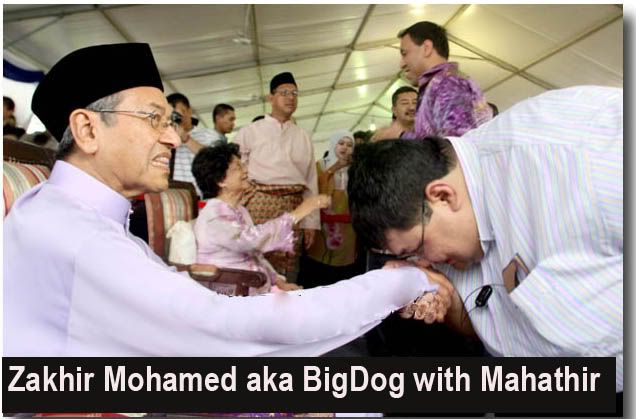


“My family and Tan Sri Muhyiddin’s go a long way back. We both hail from Muo.“-Zakhir Mohamed (Read here)
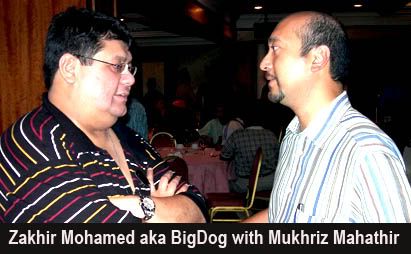
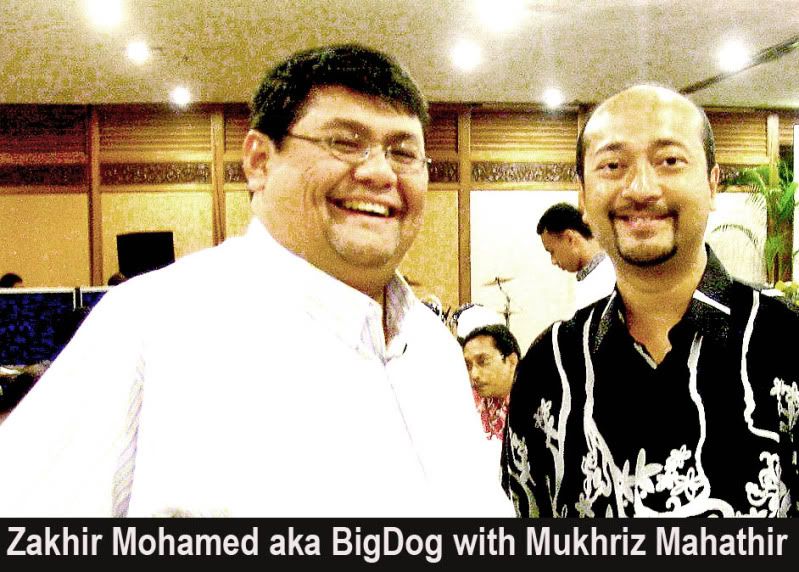

No comments:
Post a Comment